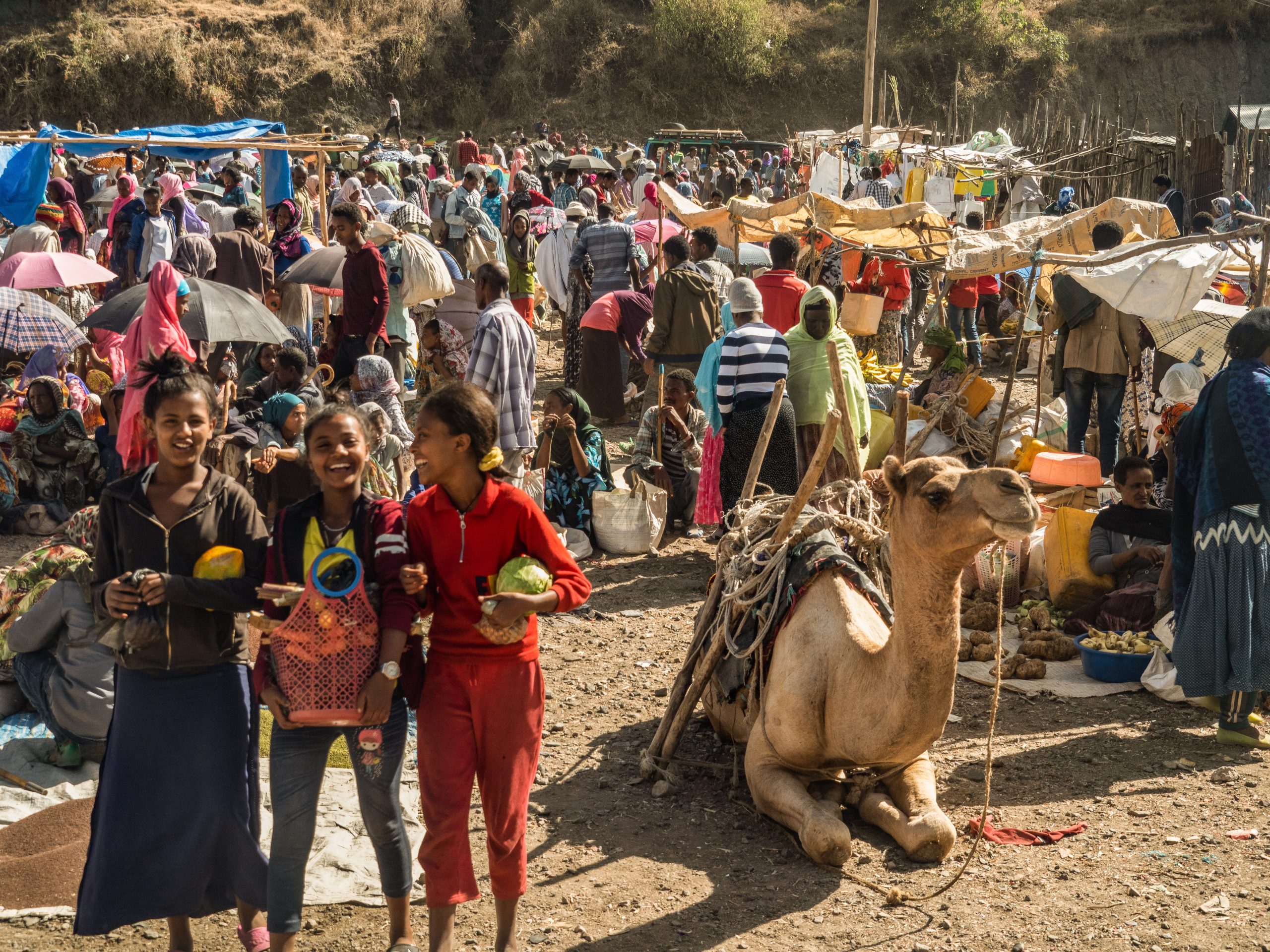
table of contents
Ethiopia, a country in northeastern Africa
Ethiopia is a landlocked country located in the northeastern part of Africa, in a place called the "Horn of Africa." It has ruins dating back more than 3 million years, and an ancient civilization flourished there. It is not a country that is well known in Japan, but this time we will introduce Ethiopia from the perspective of trade, along with some basic data.
Basic information about Ethiopia
The basic data is as follows:
- Official name: Federal Democratic Republic of Ethiopia (Federal Democratic Republic of Ethiopia)
Population: Approximately 117.87 million (2021)
・Capital: Addis Ababa
- Languages: Amharic, Oromo, English
- Ethnic groups: Approximately 80 ethnic groups, including Oromo, Amhara, Tigrayan, and Somali
・Religion: Christianity, Islam
・Major industries:Agriculture (cereals, pulses, coffee, oilseeds, cotton, sugarcane, potatoes, khat (an evergreen broadleaf tree native to Ethiopia), flowers, leather (cattle, sheep, goats))
Although it is said to be the birthplace of Arabica coffee, its economy is dependent on rain-fed agriculture for self-sufficiency, and so droughts occur frequently, leading to serious chronic food shortages.The country also faces poverty issues, including a lack of safe water supplies and sanitation facilities.
Trade situation with Japan
Trade with Ethiopia is very active, with exports reaching nearly 10 billion yen last year.
Japan's export value: 9.79 billion yen
Japan's main exports: Petroleum products, fertilizers, machinery, automobiles
Japan's import value: 7.79 billion yen
Japan's main imports: coffee, gold, cut flowers, kyat
Within the Presidential Palace in the capital, Addis Ababa, there is a Japanese garden that was built by Emperor Haile Selassie in 1956. The garden contains two buildings, a teahouse and a coffee house, where Japanese tea ceremonies and Ethiopian coffee ceremonies can be held.
Export procedure for goods to Ethiopia
In Ethiopia, there are no export restrictions other than for staple grains, but export licenses are managed in a database and export contracts for coffee beans, as well as agricultural crops traded on the Commodity Exchange, must be registered and approved by the Ministry of Trade and Regional Integration.
Export License Application
Obtain an import license or export license from an Ethiopian commercial bank. Also, submit a quality standard conformity check certificate for import declaration, and apply for a quality test certificate for export approval.
For imports in Ethiopia, obtain an import permit from a commercial bank in Ethiopia
The application for the permit will be accompanied by the payment method and necessary documents for payment, and the relevant documents will be verified.
Required documents for obtaining export license approval
1. Contract signed by buyer and seller
2. A customer acceptance letter that confirms settlement within 90 days of the Cash Against Shipping Documents (CAD) authorization date, and 3. A letter of credit that clearly states that the letter of credit was opened as a letter of credit settlement.
4. Seller's invoice.
5. Export license valid for one year
6. Tax Registration Certificate
7. Export license application form, signed and duly completed by the customer
8/ If your name appears on the list of exporters who are defaulters on tax payments issued by the Central Bank of Ethiopia (NBE), you must present a certificate of full payment of taxes to the NBE.
Summary of Ethiopia's trade and export basics
Even in Africa, where economic development is remarkable, the amount of imports and exports is growing rapidly, especially for coffee beans and agricultural products. As high growth is expected to continue in the future, attention is being paid to its trends.Please take a look at our website for other countries as well.
category:African export business
Related articles
-

Basic information on Moroccan trade and exports (overview and basic statistics)
-

Basic information on Algerian trade and exports (overview and basic statistics)
-

Basic information on trade and exports in Côte d'Ivoire (overview and basic statistics)
-

Basic information on Ghana's trade and exports (overview and basic statistics)
-

Business opportunities in Africa! Advantages and disadvantages of expanding into Africa
-

What is the trade situation in Africa? Basic information on exports, tariffs, etc.